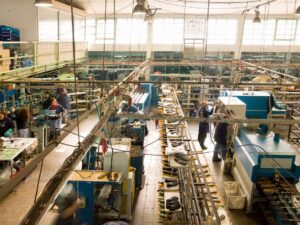- Policy
- Single-use Plastic
- National
- International
Montreal seeks to ban single-use plastic items as of 2020
Montreal Mayor Valérie Plante wants to have a bylaw tabled by Spring 2020 banning single-use plastic items in the city.
Full Article:
Author: Brendan Kelly, Montreal Gazette
Montreal Mayor Valérie Plante wants to ban single-use plastic items like straws, Styrofoam cups, disposable cutlery and grocery-store food packaging for meat, fish and vegetables.
A bylaw is to be tabled in the spring of 2020 following public consultations, she announced Wednesday.
“My administration is taking an important step to make our city and our world a greener one for future generations,” Plante told a news conference at city hall.
“This step is the first in a series that we’ll take in the days to come. We want to eliminate the use of single-use (plastic) products in Montreal.”
Plante said she wants companies to come up with more environmentally friendly alternatives.
Products being targeted include Styrofoam cups, plates and containers, disposable plastic cups, plastic utensils and take-away containers.
Plastic water bottles will not be included — at least not initially, Plante said. “Maybe it’ll take a while before the bigger companies jump in. But we’ll be pushing the agenda.”
“The city is going to war against single-use plastic products and packaging,” said city councillor Laurence Lavigne Lalonde, in charge of ecological transition and resilience for the Plante administration.
The city is to hold a public consultation in the winter of 2020, with a bylaw to follow in the spring.
However, a Greenpeace spokesperson said the city isn’t moving fast enough.
“It’s encouraging to see that Montreal is serious about either banning or severely reducing single-use plastics,” Philippa Duchastel de Montrouge said. “But we also continuously see whales that are washing ashore with their guts full of throw-away plastic items. So I think that’s a real indicator that we can’t wait until 2020 to pass these kinds of regulations, and we need to immediately ban the most problematic of these plastics, like food wrappers, plastic bottles, plastic cups, plastic lids, plastic shopping bags, and straws.
“We definitely need to see the decision-making process be accelerated. Obviously consultation should happen but we’ve known about this pollution crisis for a long time, so consultations should have been done.
“Unfortunately Montreal’s late to the game. If we want to see a comprehensive policy come out of Montreal, it needs to not only be about banning these plastics but also one that’s requiring corporations to take full responsibility for the waste.”
Meanwhile, a prominent business group suggested the city should proceed cautiously on the issue.
The Canadian Federation of Independent Business released a statement saying the Plante administration should do a study of the economic impact of banning plastic items before starting public consultations.
“How is the city going to define the products that are affected by the bylaw,” Martine Hébert, executive vice-president of the business group, says in the statement.
“Will all products that are sold in businesses like juice bottles and shampoo bottles be banned? Will some companies have to change their packing just for the Montreal market? You have to have an overall vision for the plan to counteract the negative impacts of the bylaw on businesses.”
Plante said businesses will be consulted to ensure they will be able to work within the rules of the bylaw.
“Of course the city is committed to developing a strategy to support companies that will be affected by these new standards,” Plante said.
When asked if coffee chains would be allowed to serve coffee in plastic cups, Plante was evasive.
“There’s different options,” she said. “Is it bring your own cup? Is it using material that is compostable? What I’m hoping … is that all of us together need to make those requests to those companies that we like to go to and say: ‘You need to adapt to what’s going on.’
“Because big cities are leading the way. … There are different options. That’s exactly what this bylaw is about. To look at different options, to make proposals, and to bring consciousness about what needs to be done.”



